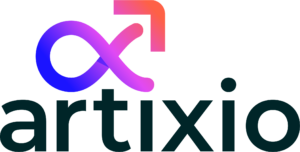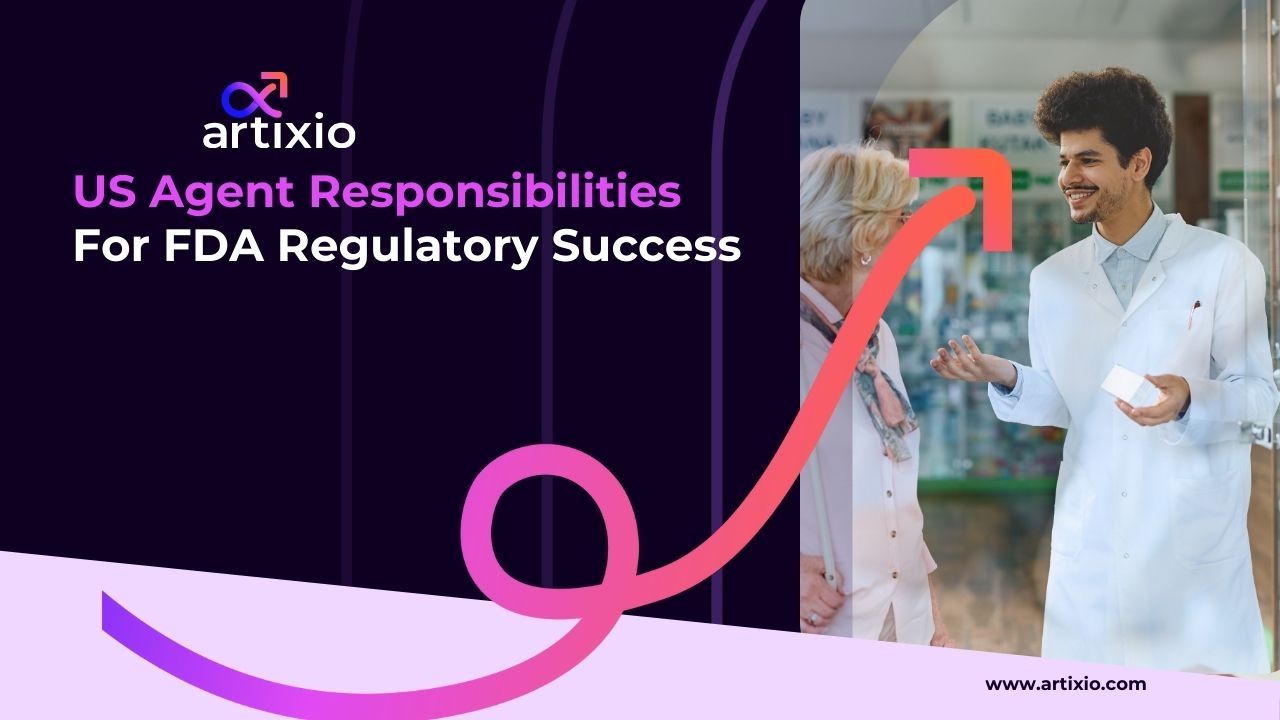Foreign manufacturers planning to sell drugs, devices, food, or cosmetics in the US must appoint a US Agent. The FDA requires this role to make sure there’s always a reliable point of contact inside the United States. A US Agent for FDA registration helps with communication, urgent notices, and compliance issues, making them essential for smooth market entry.
In this guide, we’ll look at what a US Agent does, why it’s required, and how FDA agent services support foreign companies in meeting all compliance obligations.
What Is a US Agent?
A US Agent is an individual or entity located in the United States that is designated by a foreign manufacturer, distributor, or other foreign establishment. This appointed representative serves as a communication bridge between the FDA and the foreign entity. The role of the US Agent is particularly important when the foreign establishment does not have a physical presence in the United States.
The foreign manufacturer must make updates to the US Agent’s information within the FURLS system. This includes providing details like US Agent’s name, job title, business name, address, telephone number, fax number, DUNS (Data Universal Numbering System) identifier, and email address.
Contact Artixio For
US Agent Requirements for FDA Registration
If you’re a foreign manufacturer planning to sell in the United States, naming a US Agent isn’t just a formality — it’s something the FDA insists on. Without one, your establishment registration won’t go through. The FDA’s online system (FURLS) asks for the Agent’s details up front, and until that’s filled in with the right information, the registration process simply stops.
Who Can Act as an FDA US Agent?
A US Agent can either be an individual or an organization, and they must have a residence within the United States. In the case of an entity, it should be registered in the US and possess an active DUNS number, along with a physical address for contact purposes. Furthermore, the appointed individual or entity should be available for communication during regular business hours.
Who should designate a US Agent?
Any foreign establishment engaged in the manufacturing, preparation, propagation, compounding, or processing of medical devices and wish to market their products in the United States, including contract manufacturers and contract sterilizers, are obligated to appoint a US Agent.
Specification developers are also subject to establishment registration and must appoint a US Agent along with an official correspondent. According to the FDA, any person initiating or developing specifications for a device that will be manufactured by a third party must register their establishment with the FDA before conducting business in the US. Consequently, specification developers are also required to designate a US Agent.
Who Must Appoint a US Agent:
- Primary Manufacturers
- Contract Manufacturers and Remanufacturers
- Contract Sterilizers
- Foreign Exporters of medical devices based outside the US
- Specification Developers
- Reprocessors of single-use medical devices
Any foreign food, drug, or medical device facility that intends to register with the FDA should appoint a US Agent. This requirement also extends to foreign applicants submitting NDA, ANDA, or IND applications and companies planning to send controlled correspondence to the FDA.
Contact us for Pharma Regulatory Affairs Consulting Services in USA
Responsibilities of a US Agent
A US Agent is not just a name on a form. For the FDA, this person or company is the local representative who makes sure a foreign manufacturer can always be reached. Their job is less about paperwork and more about being the bridge between the regulator and the business overseas.
- Be the go-to contact in the US for the FDA. If the agency needs to reach the manufacturer, the Agent is the first number they call.
- Pass along FDA letters, emails, or inspection notices — and make sure they don’t get stuck in someone’s inbox overseas.
- In an emergency, the Agent is expected to pick up fast and connect the FDA with the right people at the company.
- Keep a simple record of communications. Nothing fancy — just making sure there’s a trail of what was sent and when.
- Help explain what the FDA is asking for. Many foreign teams aren’t used to FDA language, so the Agent acts as a translator of expectations.
- Important to note: the Agent isn’t the one filing safety reports or product submissions — that responsibility stays with the manufacturer.
- At the end of the day, the Agent’s role is to keep the line open so nothing slows down compliance.
Also Read: Medical Device Registration Process in USA by US FDA
Why Is a US Agent Necessary?
Having a US Agent for FDA registration isn’t just a formality—it’s the legal link that connects the FDA with foreign manufacturers. This role ensures smooth communication, faster response times, and full compliance with US regulations.
- FDA compliance – The FDA makes it clear: if you are a foreign company, you must have a US Agent for FDA registration. Without one, your establishment registration in FURLS won’t be accepted.
- Direct line of communication – A US Agent (FDA requirement) ensures the agency can reach your business quickly during inspections, questions, or urgent situations. This two-way bridge avoids delays and missed notices.
- Regulatory guidance – Many firms rely on experienced FDA US Agents or third-party providers. They understand the rules, help interpret FDA requests, and make the overall registration process smoother.
- Market access – Simply put, you can’t sell in the US without meeting this step. Having the right FDA registration agent not only keeps you compliant but also speeds up your entry into one of the biggest healthcare markets in the world.
Also Read: FDA Q-Submission Meetings
Is it possible for my official correspondent to also serve as a US Agent?
Foreign manufacturers have the option to designate the same individual as both the US Agent and the official correspondent. In such instances, the official correspondent must be located in the United States and will assume the responsibilities and duties of both roles.
An official correspondent serves as the primary contact for device submissions such as 510(k) and PMA applications and can be either an employee of the sponsoring entity or a third-party agency. The presence of an official correspondent is necessary for all submissions, regardless of whether they come from a domestic or foreign manufacturer. Unlike the US Agent, the official correspondent is not restricted to being located in the US and can be from any country. It’s important to note that the US Agent does not play a role in device submissions and approvals.
Also Read: 510(k) Registration with US FDA
Designating Multiple US Agents
In accordance with the US FDA regulations, each foreign establishment is allowed to designate only one US Agent. However, there is an exception. If two distinct products are being produced in separate establishments, one US Agent can be assigned for each product. Conversely, when multiple products are manufactured within the same establishment, only one US Agent should be designated. Conversely, when one product is being produced in two different establishments, the manufacturer has the option to appoint two separate US Agents, one for each establishment, for the same medical device.
Changing the Designated US Agent
Foreign manufacturers retain the flexibility to alter their US Agent whenever they deem it necessary. Such a change in US Agent will not impact the registration or ongoing business activities. Even if the medical device is actively imported and marketed in the USA, the manufacturer has the option to replace their existing US Agent. To effect this change, the manufacturer must update the FURLS system with the new US Agent’s particulars, which include name, location, contact details, business name, address, and more. Subsequently, confirmation of this change must be verified through email correspondence.
Also Read: US FDA Regulation of Nitrosamines In USA
Designating a distributor or importer as a US Agent
In the choice between appointing a distributor or independent parties as a US Agent, there are important considerations. Distributors may lack expertise in regulatory matters and might struggle to handle incidents involving your products in the USA, potentially putting your interests at risk. Moreover, switching distributors may necessitate finding a new US Agent.
Alternatively, foreign manufacturers can appoint their distributor or importer as a US Agent, but they should carefully assess potential conflicts of interest or biases arising from their role as distributors or importers versus their regulatory obligations as a US Agent.
On the other hand, independent third-party Regulatory service providers can serve as US Agents. While this option comes with an additional cost, it offers confidentiality and provides dedicated and professional US Agent services free from any bias or conflict of interest.
Also Read: RFD & Pre-RFD Submissions For Combination Products In USA
Timeline for Designating a US Agent
Foreign manufacturers are required to appoint a US Agent for the purpose of conducting establishment registration, device listing, and related activities, all of which must be completed before importing their devices into the United States. In the case of Class I and Class II devices that are exempt from the 510(k) requirement, the appointment of a US Agent can be made immediately, followed by the completion of establishment registration, device listing, and subsequent importation into the US.
However, for Class I and Class II devices that do not have 510(k) exemptions and certain Class III devices subject to premarket notification, the appointment of a US Agent, as well as the activities related to establishment registration and device listing, should occur after obtaining 510(k) clearance. Similarly, for certain Class II and Class III devices subject to premarket approval (PMA), the appointment of a US Agent can take place only after securing PMA clearance. This same sequence applies to other devices opting for De-Novo, Investigational Device Exemption (IDE), and Humanitarian Device Exemption (HDE) submissions.
Also Read: Pharmacovigilance of Vaccines in the USA (US FDA)
In the world of FDA regulatory compliance, the US Agent serves as a crucial liaison between foreign entities and the FDA. Their role in facilitating communication, ensuring compliance, and expediting regulatory processes cannot be understated. For foreign manufacturers and establishments looking to navigate the US market successfully, appointing a knowledgeable and reliable US Agent is a vital step in the journey toward regulatory compliance and market access.
Ready to streamline your FDA regulatory compliance and gain access to the lucrative US market? Our experienced US Agent services are here to guide you every step of the way.
Don’t miss out on this opportunity—get started with us today!

